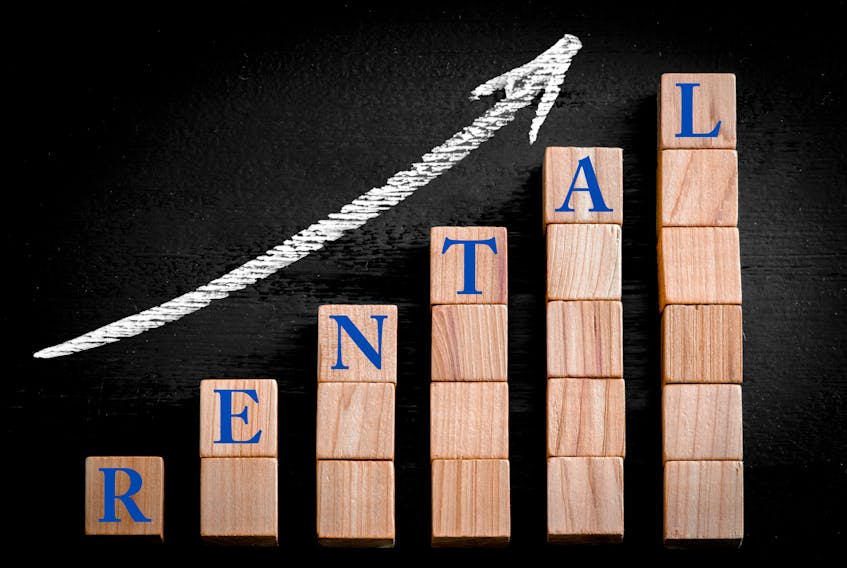It sounds like a good idea.
PC MLA Darlene Compton has called on Premier Wade MacLauchlan to immediately cancel allowable rent increases recently approved by the Island Regulatory and Appeals Commission.
Compton explained that the rent increases are the largest in six years, and given the current housing crisis, “enough is enough.”
Just to recap, here’s the rent increases set to take effect on Jan. 1 – two per cent for premises heated by furnace oil and other petroleum sources, 1.75 per cent for those that use electric heat, 1.5 per cent for unheated premises and 1.5 per cent for mobile homes in mobile parks.
Two per cent for heated premises doesn’t sound like much – on a $1,000 a month apartment – that’s an extra $20.
But let’s remember this isn’t the first annual rent increase we’ve seen approved by IRAC. If we look back to 2012 and start applying rent increases cumulatively on a $1,000/month heated apartment, that same apartment on Jan. 1, 2019, is going to be $1,184.69.
Clearly, it’s fair to say that over time, rent increases are making it more expensive to rent on the Island and causing some tenants hardship.
But is cancelling them the right solution?
If so, then while we’re at it, let’s also cancel the price increases on furnace oil, electric heat, property taxes and mortgage insurance – to name a few of the reasons cited by IRAC for the allowable rent increases.
There are two sides to this story.
In a sense, landlords are business owners, and as such, should have a way to recoup increased costs, even if it means passing them on to their customers. They run a risk of alienating and possibly losing their customers (in this case, tenants), but that’s their choice.
The other option is to absorb the increasing expenses. Some can afford this route, others not so much.
The idea of cancelling next year’s rent increase is certainly the popular position to take. Is the plan to cancel rent increases for the year after, and after that, and so on? Are no rent increases going to be the new normal?
A lot of questions. But if that becomes the new normal, we be concerned that landlords will find other ways to cut down on expenses. Perhaps the snow isn’t plowed as often or as well as before, or maybe the next time you need a plumber on a long weekend, you’ll have to wait until Monday morning. Maybe we’ll start to see more condominiums and less apartments.
It’s also fair to wonder what the role of IRAC would be moving forward if they’re taken out of the equation. By doing so, are we opening ourselves up to the possibility of moving toward an unregulated market that someday decides rent increases? It’s doubtful anyone would want that.
Proposing to cancel rent increases may sound nice and may be a way for elected officials to score some political points. But regulated rent increases, albeit unpopular, are a way for landlords to recoup expenses and rising costs.
The housing needs of Islanders struggling to make ends meet has to be addressed. This is not how.









